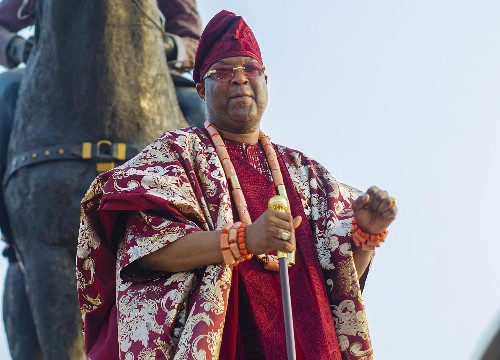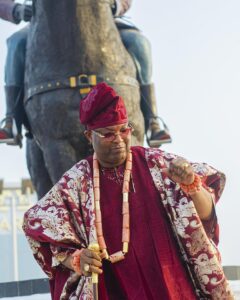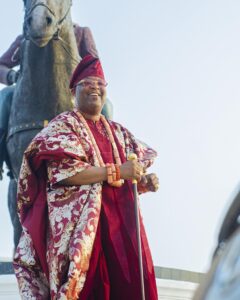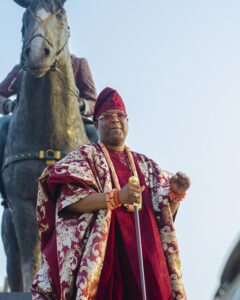There have been subtle projections for the Lagos state governorship election in 2027. Unfortunately, these early promptings seem to lack the requisite intellectual rigour for the dynamic politics and leadership demands of the state of acquatic splendour. Shola Oyeyipo writes.
A general build-up to the 2027 national elections can no longer be dismissed as “too early” again, given the current provisions of the nation’s electoral laws. By the letters of these laws, elected officials can hardly savour two years at a stretch to deliver on their promises, before campaign distractions commence.
Sections 76(2), 116(2), 132(2) and 178(2) of the Constitution of the Federal Republic of Nigeria, 1999 (as amended), state that elections shall hold not earlier than one hundred and fifty (150) days and not later than thirty (30) days before the expiration of the term of office of` the last holder of that office.
By these provisions, the electoral commission, INEC, is empowered by Section 28(1) of the Electoral Act 2022 to issue Notice for the elections not later than 360 days before the date of the elections.
Once this is done, governance takes the back stage and politics becomes the in-thing. Thus, if anyone is starting to project for the next bout of election, it may be considered part of the build-up, albeit an unlawful indulgence at this time.
Yet, the recent balloon trials about the likely turn that the Lagos governorship might take were not only poor attempts at simulating anything, they failed to show a grasp of the issues that might dominate political discourse at this time.
In one of those efforts, the failure to credit the president, Asiwaju Bola Tinubu, with deserving political intelligence by expressly tipping his son, Seyi, as a likely choice for the Lagos governorship, was one idiotic undertaking loaded with absolute baloney.
Excuse qualification for a bit as a different debate on its own, no other more serious political considerations, including religion and geopolitical factors spared a thought for him.
How a president, who would be battling to return to office, would willfully set his empire on fire, is unlikely his disposition, even though a renowned risk-taking political juggernaut.
It’s no doubt a delicate wager and there’s no debating the fact that no politician worth his salt would travel, not just on such a highway to nowhere, but obstreperously stoke a fire that would consume all that he already has in the bag.
That said, the qualification debate can now step forward. However, anyone looks at this, what has Seyi done that would make his father push him forward for the Lagos governorship?
Take a quick review of the profiles of everyone who had governed Lagos, starting from his father and say to yourself which of them he comes close to, including Akinwunmi Ambode, who was not allowed to seek re-election?
The Yoruba will readily ask anyone with poor reasoning to smell his own words and tell how badly it stinks. Perhaps, those pushing this agenda should read over their garbage and tell themselves how that is feasible with all the variables waiting to determine the next choice for Lagos.
Curiously, the other leg to the early promptings and their tawdry delivery was the veiled move to put down some names, while making others appear impossible choices.
It is true and arguable that the Senator representing Lagos East, Tokunbo Abiru, is a good material for Lagos. From the halls of many banks to the red chamber, it is hard to dismiss or downplay his eligibility, suitability and capacity.
He fits the bill in all ramifications and has earned a constant mention in the race for the Lagos governorship, even before he went to the senate. These notwithstanding, he, too, would battle other factors, although determined by the “owner” of Lagos, when the time comes. His choice is therefore not a given yet.
Interestingly, one name that is gradually creeping into the mix, and which a majority of the Lagos politicians are coming to terms with as seemingly fitting the bill and picture of Tinubu’s unusual choice for governor is the current Minister of Education, Dr. Tunji Alausa.
Whatever analysis anyone is doing now that does not yield a deserving space to Alausa is probably clowning for want of what to write. He may appear unnoticed and unpopular for now, many observers from Lagos already see his redeployment from junior minister at the Ministry of Health to Education as instructive.
This development, they now argue, was not only to properly position and prepare him for the Lagos challenge, they are convinced that the ministry would start to get more votes as part of design to empower and put him on a stronger footing ahead of the decision to either draft him into the race or empower him.
For an average politician, his nomination to the cabinet was not a surprise. The duo of Tinubu and Alausa had come a long way since their days in the United States. While the latter was said to have done a lot in service for the former back in the day, Tinubu has not had the opportunity to compensate him. The time to do so is now.
Unfortunately, there’s one more name that is already being mentioned, sadly in talk-down tone and that is the current Deputy Governor of Lagos State, Dr. Obafemi Hamzat – a man of class and distinction.
While no one can emerge Lagos governor without the blessing of the president, except, of course, God personally steps in, Hamzat is one material that both the political class and the ordinary citizens of the state have continued to tip as Lagos’ best bet. Their reasons suit all logics.
First, as the current deputy governor, who would have run the state with Governor Babajide Sanwo-Olu for eight years by 2027, it would make transition easy. The fact that he understands the development agenda of the state as an active player cancels out many “ifs”.
In addition, he satisfies practically all political considerations as far as the race to the Lagos governorship is concerned. Smart, sound and very intelligent, he is also hands-on, so much that his choice would naturally relieve the president of any worry back home while the battle for his reelection rages across the nation.
His knowledge of Lagos, development politics, issues and the management of the political class puts him miles ahead of everyone else. This also explains while those conversant with these facts but want someone else have continued to use his strengths against him, insinuating that the president would not field a man, who seems solid in everything.
By implications, the move is intended to set him up for failure and make him lose favour before the president. Indeed, some have also openly sung to him that anyone who overtly or subtly indicates interest in the governorship never gets it, citing the president’s style as constant in this decision.
However, while it may appear that the president has always gambled with his choice of the Lagos governor, and has always been lucky to end up with good hands, including Ambode, his inadequacies nonetheless, political dynamics also demand a review of strategy for results that are in sync with current realities.
At the end of the day, the only person who will determine the next governor of Lagos state is God through the instrumentality of the people.
The same God has also placed in President Tinubu, the power and influence to choose right on behalf of the people again in 2027, without downplaying the prevailing factors, both in the state and his own election.
But the choice candidate must have the right character, temper, knowledge and capacity to do the job. After all, this is Lagos.
In the final analysis, the early promptings are not completely out of place and may help stoke real conversations ahead of the Lagos 2027 poll. However, pandering to obvious idiocy in order to flesh up weak analyses is counterproductive, even to their own idea of who the cap fits.
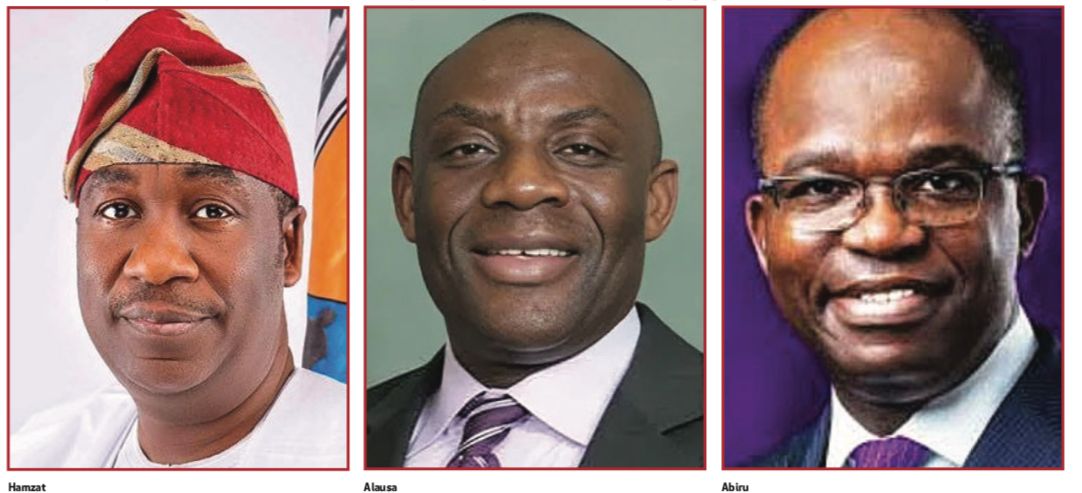

 BIG STORY3 days ago
BIG STORY3 days ago
 BIG STORY2 days ago
BIG STORY2 days ago
 BIG STORY3 days ago
BIG STORY3 days ago
 BIG STORY2 days ago
BIG STORY2 days ago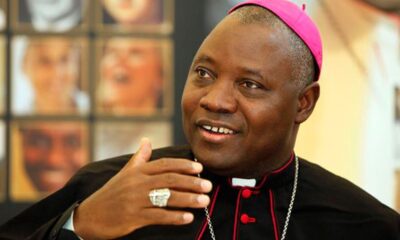
 BIG STORY4 days ago
BIG STORY4 days ago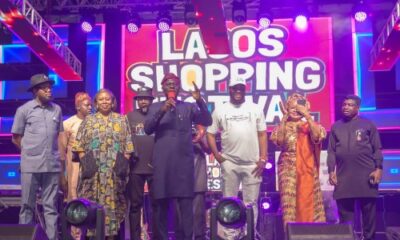
 BIG STORY5 days ago
BIG STORY5 days ago
 BIG STORY3 days ago
BIG STORY3 days ago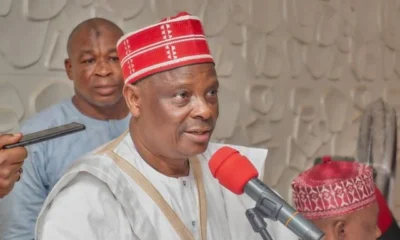
 BIG STORY2 days ago
BIG STORY2 days ago








